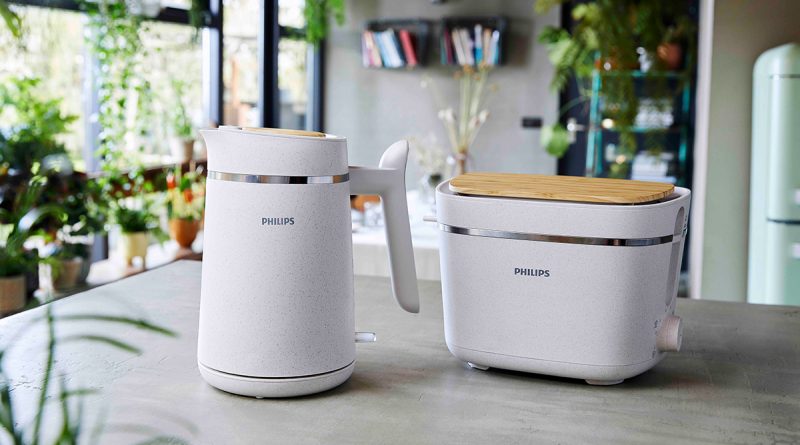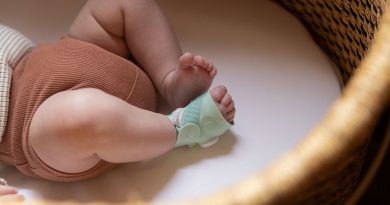Philips brings out planet-friendly toaster and kettle
The first sustainable toaster and kettle made with bio-based plastics derived from plant oil waste have been released by Philips Domestic Appliances.
The path to the Eco Collection starts with the growing of sunflowers to turn into cooking oil. Once that’s been used to fry your fish and chips it’s sent to a factory to be turned into bio-based plastic granules which, in turn, are used by Philips to make parts of its products.
The company says the new process “represents a breakthrough in the field of developing and manufacturing sustainable materials” and reduces water pollution, carbon dioxide emissions and the use of natural resources.
The Philips Eco Collection 5000 Series toaster and kettle have a modern, angular design and their main bodies – made from 94 per cent and 84 per cent BioPP (polypropylene), respectively – have a pleasingly speckled appearance. The toaster takes a single slice on each side and has a knob for browning settings including reheat and defrost. The kettle has a 1.7-litre capacity. Both appliances have wood accents – on the lid of the kettle and in the form of a dust cover for the toaster.
Sustainability partnership
Philips Domestic Appliances has upped the sustainability ante by also using eco-friendly packaging and partnering with EcoMatcher to plant a tree for every Eco Collection appliance bought.
The company has begun by investing in a few thousand trees which will be planted in a Philippines forest called Buhay – which means life in Tagalog. It’s doing this through EcoMatcher’s Philippines NGO partner Fostering Education & Environment for Development (FEED).
Once you’ve bought your toaster or kettle, you can redeem your tree and track it on a satellite map through the EcoMatcher website or app. You can name your tree, see its location, track its CO2 performance and even use ForestSounds to listen to the sounds of its location.
“Our ambition is to eventually create a complete Philips Domestic Appliances collection of products designed with sustainability in mind,” says Philips Domestic Appliances Australia and New Zealand country manager Geoff Hannaford. “By introducing bio-based plastics made from used cooking oil, we contribute to the reduction of CO2 emissions, we help to reduce water pollution, we limit overall use of soil resources (meaning a lower impact on food production) and we create products with parts that are recyclable.”
Philips Eco Collection 5000 Series toaster price
RRP: $129
Philips Eco Collection 5000 series kettle price
RRP: $129




